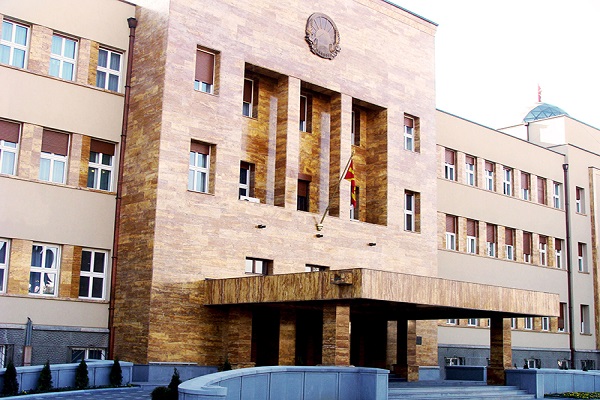by: XHABIR DERALLA
On this day seven years ago (July 8, 2014), in the midst of a world football championship, we promoted the report “Elections 2014: Democracy Disqualified“. This report and the promotion itself, thanks to the creative ideas of Sasho Ordanoski and illustrations of Igor Stevkovski – Stevac, was one of, for me, the most interesting promotional events of CIVIL. Those days marked eight years of VMRO-DPMNE in power (after the elections in June 2006).
The report starts with Sasho’s words, based on which the artistic form of the report was built on:
“Eight years after VMRO-DPMNE came to power, and after eight election cycles at all levels of government, the best description of the current state of Macedonia’s electoral democracy is to imagine a football match between political rivals being played on a field on which the government has placed its goal on top of the hill, the opposition’s poles are situated in the swamp at the foot of the shore, the referees are offered “sweeteners” to support the government, the ball is exchanged for a hockey puck, instead of football boots the opposition players are running around in flip-flops, the audience consists mainly of public servants, one of the government’s smaller coalition partners holds the monopoly on peanut & refreshment sales, and the rights for direct and objective broadcast of the competition has been exclusively won by TV Sitel. Most of the other important elements of the election process – such as the dimensions of the voting booths and the design and colour of the ballots – comply to the high Scandinavian election standards.
Furthermore, at the very beginning of the Report, an outline is made of the election process in 2014, in order for further in the report for all the views presented in the introductory part to be presented based on documents and testimonies collected by CIVIL’s observers on the ground.
CIVIL at the time notes:
“Inadequate separation of party and government resources and activities, intimidation, excessive pressure on ethnic Albanian voters to boycott the presidential elections, major media bias in favour of the ruling party and its presidential candidate, inconsistencies and ambiguities in the electoral legislative regulations, concerns about the accuracy of the electoral rolls, ineffectiveness of the mechanism for resolving election disputes, etc.”.
On a long-term basis, the basic attributes of the regime at that time can easily be outlined, after eight years of rule:
“All of this is transpiring in an enduring atmosphere of hate speech, indirectly promoted and encouraged by the government through electronic and print media, most of which have editorial policies under the direct control of the government; in the absence of political dialogue as a result of a fierce confrontation between the regime and the opposition in the country; with serious irregularities and erosion of democratic standards in all spheres of the functioning of a normal parliamentary democracy. In addition, the electoral process is conducted in combination with a highly charged political atmosphere, of weak and politicised government institutions, widespread social insecurity and poverty, low public awareness and continuously fuelled ethnic tensions”.
The promotion of “Democracy Disqualified” was held exactly seven years ago, in GEM, in the Old Skopje Bazaar, somewhere around noon, while outside the weather conditions were in an orange warning phase and the regime in a red. Amazingly, although we expected for everyone to be “busy” with the football championship or with other orange and red excuses not to come, the place filled up with people. There were even some cameras that came, even though most of the footage did not go on air, but rather in some archives, as was usual at the time.
We made the illustrations of Stevac that are published in the report also in life size. In addition, we had a special “museum” section in which “artefacts” from CIVIL’s election monitoring were placed. A large number of exhibits were displayed – from badges and notes of observers, minutes of Election Boards, to copies of printed material with black propaganda and screenshots of internal communication related to election pressure and political corruption.
We took pictures with the showpieces at this exhibition, spoke openly, just as we wrote and spoke the entire time, a period when many, not only didn’t dare to speak, but also flattered or cooperated with the regime. Seven years later, this report remains the “happiest” testimony of a dark period that our society went through.
I think that it’s important to keep these memories, in order to know where we come from, where we are and where we must not go back to. Ahead of us is a long road, why would we return!
Translation: N. Cvetkovska
















